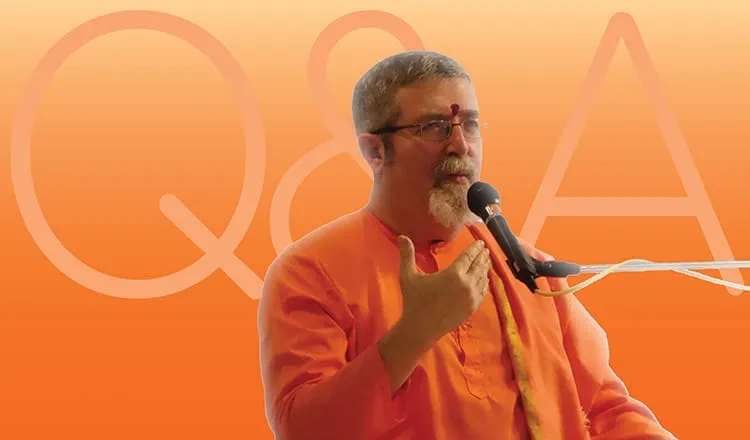Sivananda Bahamas Blog
Expand Your Horizons …
Our Blog
Commitment to a Spiritual Life
Question: Please explain how an aspirant can wholeheartedly commit to a spiritual life and be successful in meditation.
Answer: This depends on the predominant samskaras, or the impressions, that are activated at the time of our birth. We are born with samskaras, with existing impressions in our mind. More importantly, we are born with activated vasanas, or tendencies, which are activated at the time of birth. Then our prarabdha karma means that at certain moments in our life, certain vasanas or samskaras will get activated — and suddenly, we will be interested in yoga.
To come to a Yoga Teacher Training course is rare. If you come to a Yoga Teacher Training Course, for example, it is unlikely that this is the first life in which you practice yoga. Most probably you have practiced yoga in many lives. Similarly with our Yoga Vacationers. Think logically: what is the logic to come to an ashram for a vacation? It is illogical. If your friend at home asks you, “OK, what did you do there?” You say, “Well, I woke up at 5:30 in the morning.” Then he will ask you, “Is this a vacation?”
Our Yoga Vacationers, they are also yogis. Swami Vishnudevananda called it a “Yoga Vacation”; it is a nice name. But what are Yoga Vacationers doing? They are doing sadhana, they are doing spiritual practice. And they go a little bit to the beach, they swim, and — what do they eat? They eat what Swamiji called “rabbit food” — it is carrots, and greens. It is unlikely that a person who spends time here as a Yoga Vacationer, maybe year after year, some, a few times a season, well, it is likely that this person practiced yoga in many lives.
And depending upon those samskaras, there will be within us an inner motivation — I call it a self-motivation — to do spiritual practice. The stronger the self-motivation, the more likely one is able to commit whole-heartedly to spiritual life and to experience success in meditation. It will happen. Yogic self-motivation grows with yogic practice. The more you practice, the stronger this inner motivation will become. Yogic practice itself enhances self-motivation.
You may notice that in the beginning, and discipline are weaker; but then, as the practice becomes stronger and stronger, and when you start to have some of the inner experiences, the higher experiences — then the motivation will become very powerful. Then, you will not need a person to wake you up in the morning to meditate. In fact, when you go to sleep, you will think, “Oh, it is such a pity that I have to go to sleep, because I have to wait 6 hours before morning satsang.”
There are about 600-700 million people around the world who practice yoga. Why do they practice yoga? Because yoga changed their lives. Because they have a passion for yoga. Millions of people are meditating and practicing yoga; and their samskaras are activated, motivating them to practice. They are so happy to practice yoga. They are so happy to teach yoga.
The more we practice, the stronger the inner motivation becomes.
And there are ups and downs. Do not think that yoga is just going up, up, up; there are ups and downs; this is natural.
Another thing is satsanga. Satsanga means to be in the company of practitioners. This is very helpful. Many times we asked Swami Vishnudevananda, “Which is more powerful: personal meditation, or group meditation?” And I heard Swamiji say many, many times “Group meditation is more powerful.” When you are in the company of other practitioners, your own self-motivation becomes stronger. The other people help us. Association with fellow practitioners is very helpful. It is very difficult to practice and live a spiritual life alone. It is much easier to do it with the help of others.
As for meditation, we learn in the Bhagavad Gita that the most important preparation for meditation is Karma Yoga — the yoga of selfless service. Lord Krishna says in the Bhagavad Gita, “When the mind and the heart are purified by the practice of Karma Yoga, that yogi becomes ready for meditation.” That is why Swami Vishnudevananda put so much emphasis on Karma Yoga — precisely for the purpose of becoming good meditation practitioners.








